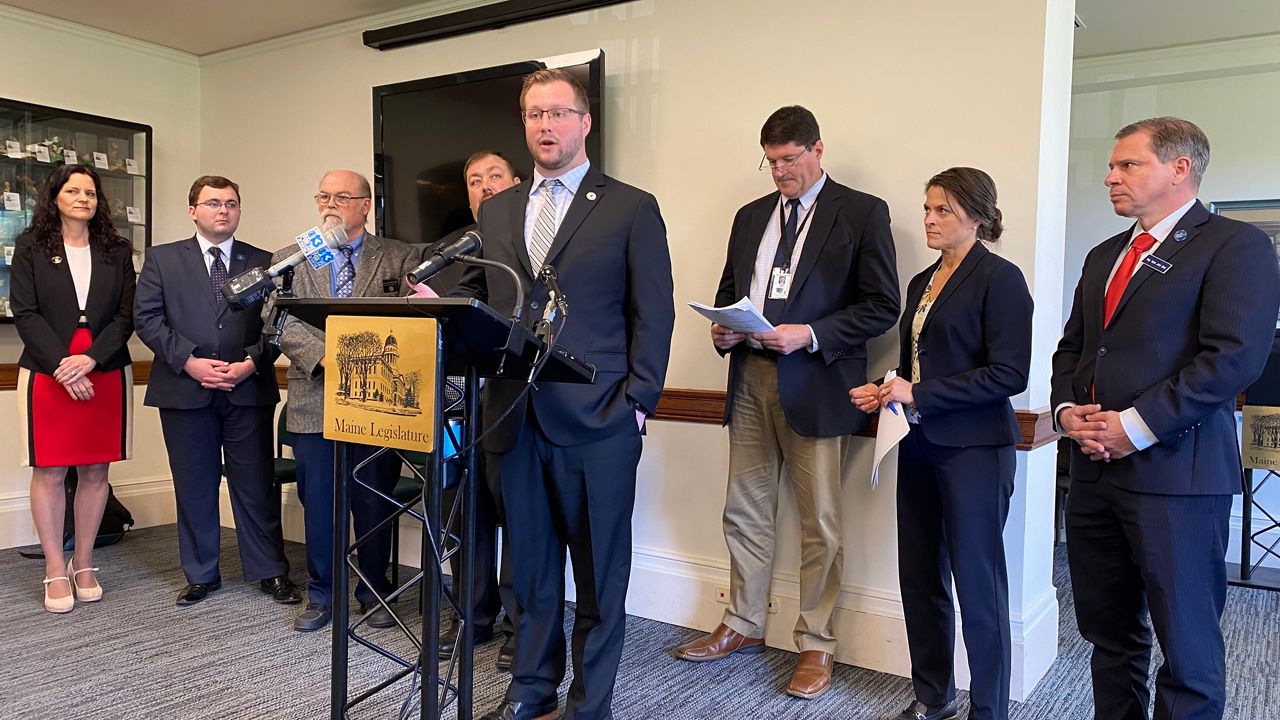Maine Republicans say they want to work with Gov. Janet Mills on a comprehensive tax cut package that would cost an estimated $400 million.
But comments by the Democratic governor’s finance commissioner earlier this week appear to take that off the table.
Following the Democrats’ passage of a $9.9 billion continuing services budget in March, Mills released a second spending plan last week that proposes to spend state funds on housing, homelessness, schools, transportation, emergency medical services and a host of other initiatives.
The budget earmarks $432 million in appropriations and $455 million in transfers and would increase the overall two-year state budget to $10.3. billion.
“The reality is here we’re talking about substantial excess money and what to do with it,” Senate Minority Leader Trey Stewart (R-Presque Isle) said. “What we’re talking about quite literally is the excess above and beyond everything else. That is what the fight is going to look like over the next month or so.”
In a joint press conference Thursday, House and Senate Republicans offered few details about what their tax and spending cuts would look like. A one-page outline highlighted $400 million in tax relief that would come from cuts to sales and income taxes.
They listed as priorities school safety, mental health services, welfare reform, reducing regulations on housing and ending solar subsidies.
But when pressed for details, they said they are reviewing proposals in the pipeline and would offer more specifics next week.
They criticized Mills’ proposal for creating 400 new jobs and for not putting forward any structural tax relief.
But Stewart said they are extending an “olive branch” to Mills in hopes of getting some Republican priorities included in the budget. Those changes will be critical to earning GOP support, which would be necessary if majority Democrats want to pass the budget with the two-thirds needed for it take effect immediately.
If only Democrats support it, it will not be effective until 90 days after the Legislature adjourns, which is likely to be late June. That delay could be critical for things such as rural emergency medical services, many of which are in danger of collapsing amid rising costs and declining volunteerism.
When asked whether the governor is interested in negotiating with Republicans on the budget, Mills’ spokesman Ben Goodman referred Spectrum News to statements made Monday by finance commissioner Kirsten Figueroa.
She referenced prior calls by Republicans for the budget to include $200 million to $400 million in income tax reductions, saying “the governor took this proposal under serious consideration.”
But she then told the Appropriations Committee that previous budgets have provided more than $200 million of ongoing tax relief per year, which includes expanding the Earned Income Tax Credit, the Property Tax Fairness Credit, tax cuts for retirees, student loan debt relief and an expanded Homestead Exemption for homeowners.
In response, Republicans said Thursday those programs are targeted and do not provide any structural tax relief for all Mainers.
“You can’t take existing tax relief and say we’re not going to cut that out so that’s your tax relief,” said House Minority Leader Billy Bob Faulkingham (R-Winter Harbor). “That doesn’t pass the smell test.”
In further explaining why the governor did not propose “a structural, ongoing income tax reduction,” Figueroa said the state’s commitments to education funding, state worker pay, municipal revenue sharing, the Homestead Exemption and other programs will only get more expensive in future years.
“To reduce those revenues by $200 million or $400 million would threaten the state’s ability to meet its ongoing, bipartisan commitments to Maine people, unless to maintain a fiscally responsible and sustainable budget, you cut spending, which will mean reneging on commitments, or you find another way to increase revenues,” she said.
Republicans said they remain undeterred and will roll out more details next week.
“It’s the single most important thing that we’ll do in this Legislature,” Stewart said. “I do think it will be a better product at the end of the day if it’s a two-thirds budget and they are willing to work with the other side.”



